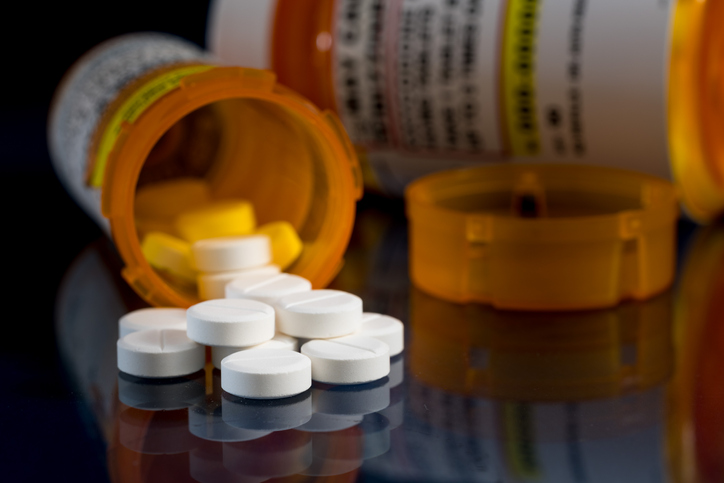Exercise is known to improve our mental and physical health. Specific forms of exercise, such as aerobic exercise, are linked to reduced mental health problems, including depression and anxiety. So, what’s the relationship between exercise and addiction recovery? While it is only a piece of the puzzle, exercise can be a valuable component of long-lasting recovery, especially when it is paired with other therapeutic approaches.
Aerobic vs. Anaerobic Exercise
The American College of Sports Medicine (ACSM) considers aerobic exercise to be any continuous, rhythmic activity that uses large muscle groups. While there are also ranges of heart rate (HR) that define aerobic exercise, it is generally considered an exercise that can be sustained. Think of a nice bike ride, swim, jog, dance class, hike, or walk. These activities can be maintained for long periods due to our cardiovascular system using oxygen to create energy for movement.
On the other hand, exercises that can not be sustained are considered to be anaerobic. Anaerobic exercises are short in duration yet intensely physical. Additionally, these exercises are not fueled by oxygen in the same way aerobic exercises are. While sprinting or other anaerobic exercises can benefit overall health, aerobic exercise is highly effective in overall health and recovery.
Aerobic exercise is well known for improving overall mental and physical health. Some health benefits include:
- Lowers the risk of cardiovascular disease
- Decreases blood pressure
- Help with weight loss or maintenance
- Helps manage diabetes
- Improves long-term well-being
- Reduces anxiety and depression
- Helps manage stress
Aerobic Exercise and Addiction Recovery
There is no question that professional treatment is a necessary component of long-lasting recovery. Still, aerobic exercises are valuable because they complement traditional treatment interventions. Here are some examples:
Improves Self-control
In recovery, self-control is a critical skill that must be relearned. Living in recovery requires us to manage and overcome triggers and temptations, which can be challenging in the recovery process. The prefrontal cortex of the brain plays a key role in this process as it helps us to make rational decisions and overrides impulses. During addiction, this brain region is altered and becomes less active.
A study published in 2016 by Frontiers in Psychology tested 45 healthy women to determine whether aerobic exercise directly affects self-control. Researchers found that there was a significant improvement in the self-control of participants after five weeks of regular exercise. While more research is needed to understand why this occurs, it does support that aerobic exercise improves self-control and recovery overall.
Can Improve Mood
Many individuals in recovery will struggle with mood changes, specifically depressed moods. This is because the brain is experiencing dysregulated dopamine production as a result of repeated drug use. While it can take time for the body to normalize, aerobic exercise has been shown to improve depressed mood.
In recent years, studies have found an association between poor treatment outcomes for addiction and depressive symptoms. Thus, the improved mood from aerobic exercise can not only make us feel better, but it can improve the effectiveness of treatment.
Improves Sleep
Drugs and alcohol can disrupt sleep patterns. Aerobic exercise can help us get back into a regular sleep rhythm and improve overall sleep quality. Improving sleep, in turn, can help improve cognitive function, decrease anxiety, and help overall mental health. Decreased cognitive functioning, along with disrupted sleep, are predictors of relapse. Thus, aerobic exercise could not only improve sleep but also decrease the likelihood of relapse.
Increases Self-Efficacy
Self-efficacy refers to a person’s confidence in their ability to complete a task. Recovery from addiction is a lifelong journey. Learning that we are capable of completing tasks and following through with our recovery is important. Increased self-efficacy has also been shown to lower the risk of relapse.
Decreases Stress-Reactivity
When we are in stressful situations, our reactions can depend on our mood, energy, and other factors. The combination of sleep disruption, mood changes, and chemical disruption can impact stress reactivity during addiction and recovery. This may surface as increased irritability when small stressors pop up, like a change in schedule or being cut off in traffic.
Stress reactivity is associated with an increased risk of relapse. The effects of aerobic exercise in decreasing stress reactivity can aid in the recovery process, as well as decrease the risk of relapse.
Aerobic Exercise in Substance Abuse Treatment
Aerobic exercise can foster a number of benefits for individuals seeking addiction treatment and recovery from substance abuse. In addition to all of the benefits mentioned above, engaging in aerobic exercise can also help to decrease both cravings and withdrawal symptoms. Learning to manage and overcome cravings is one of the most important factors in a successful recovery. Still, it is important to remember that exercise without substance abuse treatment will not be as effective as exercise alongside substance abuse treatment.
Addiction recovery is a challenging road. It takes courage and professional support to find the right balance for a successful and lasting recovery. Not surprisingly, exercise can aid in the addiction recovery process. Aerobic exercise, specifically, can have many benefits for recovery and can be integrated into the treatment process. This type of exercise can help to improve mood, efficacy, sleep, and self-control while decreasing stress reactivity. All of these components have been shown to decrease the risk of relapse. Integrating exercise into your routine could be extremely beneficial in your long-term recovery.
Here at Buena Vista, we believe in your ability to recover. We can help you discover fun and unique ways to engage in exercise during your recovery. To get connected with one of our treatment programs or for more information, give us a call today at (480) 741-9414.




